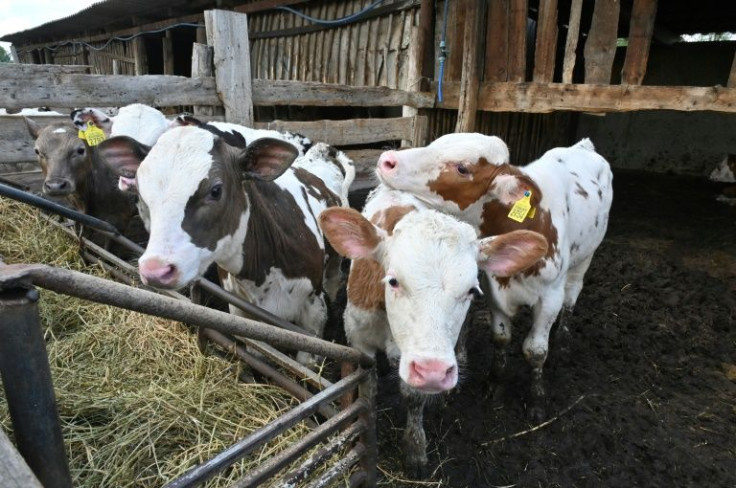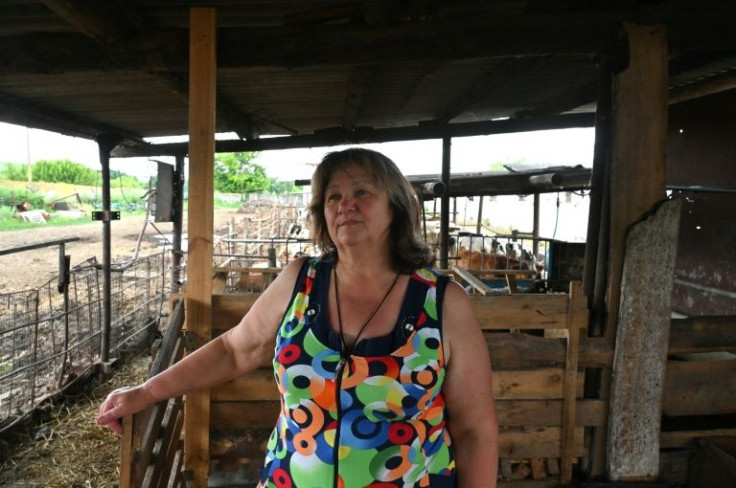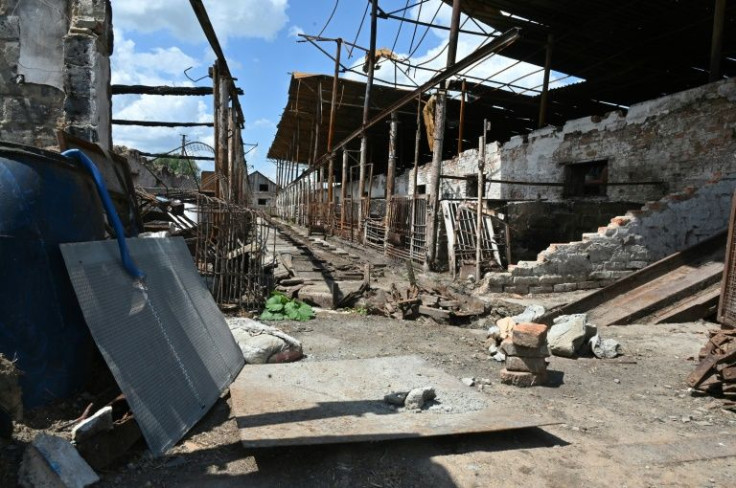Ukraine Farm Animals Burned Alive In Russian Bombing
At a farm in northern Ukraine, a spooked-looking heifer has been limping since one of her hind legs was shredded by shrapnel in a Russian attack that has been mirrored on farms across the country since the war began.
The four-month-old survived bombardments that killed around a third of animals on the meat and dairy facility in Mala Rogan, a village around 25 kilometres (15 miles) south of Ukraine's second city Kharkiv.
It was a "nightmare" recalls owner Lyubov Zlobina, 62, who says she is "haunted by the howls of cows burned alive" during the attacks on March 26.

"I cling on to this little miracle," she said, referring to the injured heifer, the distant thuds of shelling echoing in the background.
"I gave her antibiotics twice but sadly the wound is still oozing and she isn't putting on weight," she added.
"If we could take out the shard, maybe she would recover. For surgery, we'd have to take her very far away and we can't," said Zlobina visibly upset.

In the first weeks of the war, Mala Rogan was captured by Russian forces. They have since been beat back, leaving behind a battle-scarred hellscape.
Zlobina's husband, who served in the Soviet army in Afghanistan, showed AFP journalists several videos taken during the attacks.
"We were running in every direction out of the shed," Mykolai Zlobin, 57, recalled, describing how hay in the shed burst into flames. A cow that was giving birth had its head severed.

They had to knock down a segment of wall with a tractor to get the trapped cows out, all while explosions were falling around the panicked herd.
"I tried to save a few piglets but their mothers were protecting them under their bellies," said Zlobina. The hens, she said, clucked and pecked through the attack as if nothing was happening.
Yulia Koval, a 38-year-old farm employee said part of a roof fell in while she was trying to hurry calves from a farm building.

"We could have not done it because everything around was falling apart. But we didn't have time to think it over, she says. We just wanted to save them, that's all."
Animals with serious injuries have since had to be put down.
The shed now is a burnt out, rusted skeleton. Animals graze and mull about in fields surrounding the farm, which, unlike much farmland in eastern Ukraine does not appear to have been mined.
For the youngest and most vulnerable animals, a hastily-constructed shelter offers some protection but a more robust alternative will have be found for the winter.
Farms and agricultural land across Ukraine have been devastated by the war. Local media routinely report huge losses caused by Russian shelling.
Government figures suggest that 15 percent of the country's livestock have been killed since Russia invaded on February 24.
The NGO Open Cages Ukraine said in a June report that it expects the number of farm animals killed during the conflict to be around 300,000 by the year's end.
Also roaming the two-hectare farm in Mala Rogan are exhausted and starving stray dogs, abandoned by their owners who fled Russia's advance to towns and cities in eastern Ukraine.
"Look at this injured ewe with her three lambs," Zlobina says, pointing at her as she tries to hide.
"She was attacked not even 24 hours ago."
"At first, the dogs ate the bodies of abandoned Russian soldiers and we sometimes found a foot or a hand on our land. Now they are attacking the cattle," she said.
© Copyright AFP {{Year}}. All rights reserved.





















